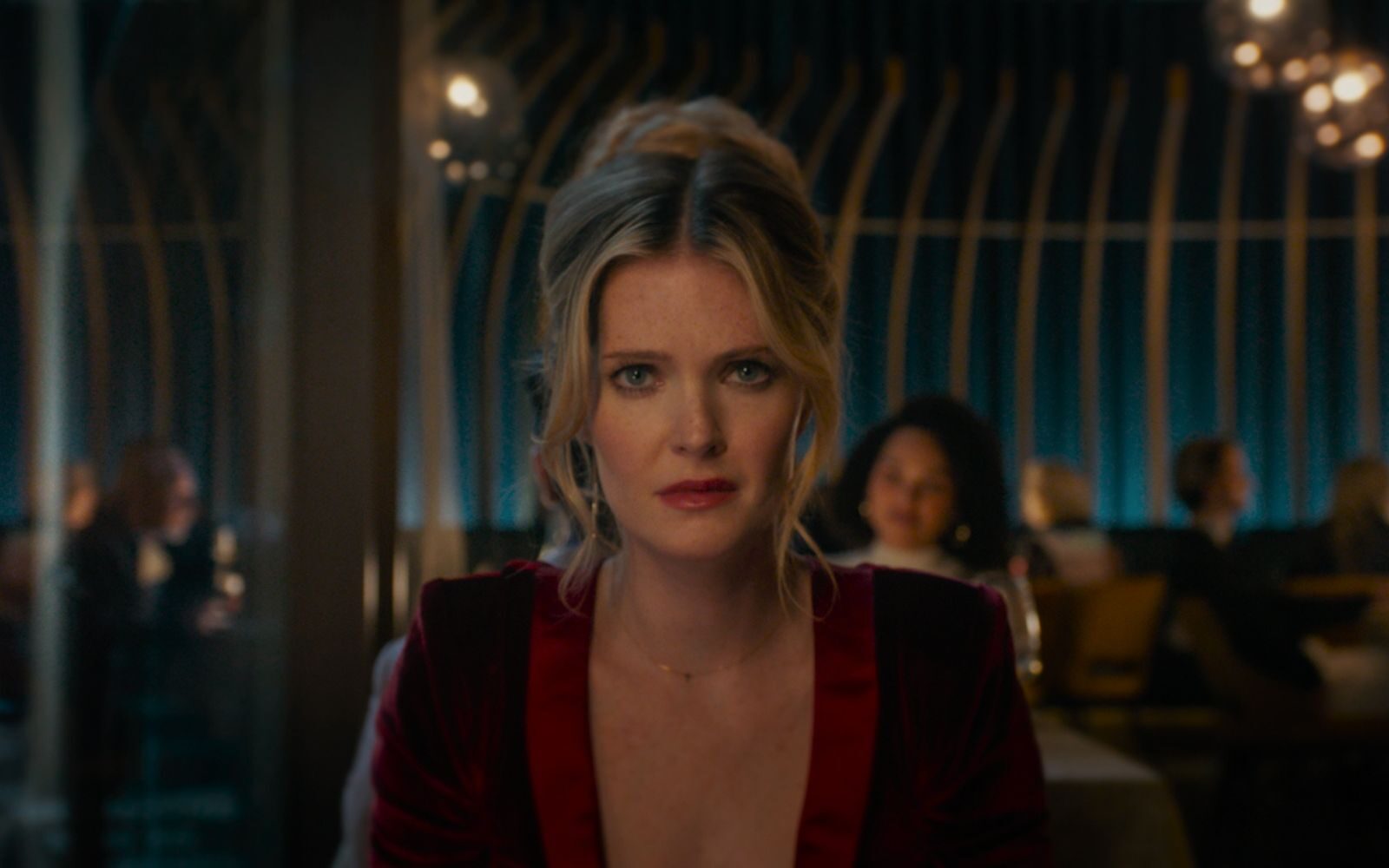
Drop Serves Up The Worst (And Best) First Date Ever
Christopher Landon’s pulpy, hyper-stylized chamber piece knows how to set up the dominoes and make them tumble with gusto.
Directed by Christopher Landon
by Prabhjot Bains
- Published on
In an era that consistently sees both blockbusters and independent fare reach for the stars, it’s gratifying to watch a film that understands exactly what it is. Christopher Landon’s Drop is such an experience, as it hones in on its pulp aspirations with deadly precision, crafting a taut, tech thriller that extracts its weight in gold from a ridiculous (and delicious!) single-location setup. Armed with a plot that’s as implausible as it is engrossing, Landon’s film not only knows how to meticulously set up the dominoes but also how to make them tumble in style.
While stilted writing, plot conveniences, and an all-too-tidy conclusion keep Drop from making a greater impression, it navigates the peaks and troughs of its breezy 100-minute ride, with a deft, tantalizing hand. It’s the kind of rare, self-assured film that appreciates the beauty of not exceeding its grasp, while routinely poking and prodding at the expectations of its audience.
Meghann Fahy stars as Violet, a widowed single mother who is reeling from an abusive relationship and is extremely nervous about re-entering the dating scene. After dragging photographer Henry (Brandon Sklenar) in a text chain for months, she finally agrees to see him. When entering Palate—a fancy restaurant situated atop Chicago’s skyline—Violet begins to receive a series of ominous Airdrop (dubbed “Digidrop” in the film’s world ) messages on her phone.
It’s here where screenwriters Jillian Jacobs and Chris Roach’s humour takes hold, with each airdropped photo skillfully drawing on the ever-growing Rolodex of notable internet memes. From “The Distracted Boyfriend” to the “Kombucha Girl” to even “Elmo on Fire”, Drop’s crafty comedic touch toys with the audience, forcing us to let our guard down before it throws us into a relentless ringer. The messages quickly morph from harmless to malicious when Violet is instructed to kill the walking adonis or risk the death of her sister, Jen (Violett Beane,) and son Toby (Jacob Robinson) at the hands of the goon who’s broken into her house. The only question that remains: Will she do as she’s told?
Drop wastes no time in getting us familiar with its single location, seamlessly taking us through each nook, cranny, and crevice of its dazzling high-rise restaurant. There’s an engrossing economy to Landon’s cascading camerawork, as he stitches together amusing character introductions and nail-biting set pieces with remarkable ease. Whether Drop focuses on the bumbling, overtalkative waiter or Henry’s dashing sensibilities, Landon proves to be a deft tone juggler, entwining comedic, heartfelt, and nerve-wracking sequences with a natural sleight of hand.
Yet, as the film breezes along, character interactions begin to feel inauthentic and, at times, forced. It’s here where the film’s pulpy ingredients turn sour, relying on genre conventions that are far hokier than endearing. It’s an affectation that’s most prominent in the film’s over-stylized and silly on-screen phone messages, which—like in many other modern movies—feel jarring and at odds with film’s language.
It’s a wonder that Meghan Fahevy saves the film from itself, finding a register that’s both heightened and believable. We not only find ourselves absorbed in her plight to outwit her coercers but also attuned to the trauma and grief that looms over her. She’s the perfect kind of wildcard in a film that knows its favourite hand and plays it beautifully.
Drop is in theatres on April 11

